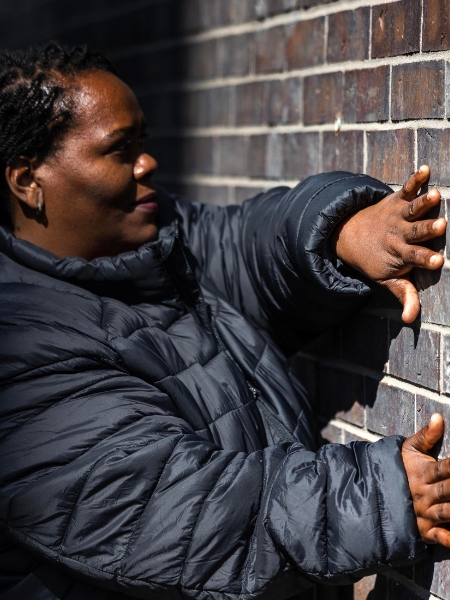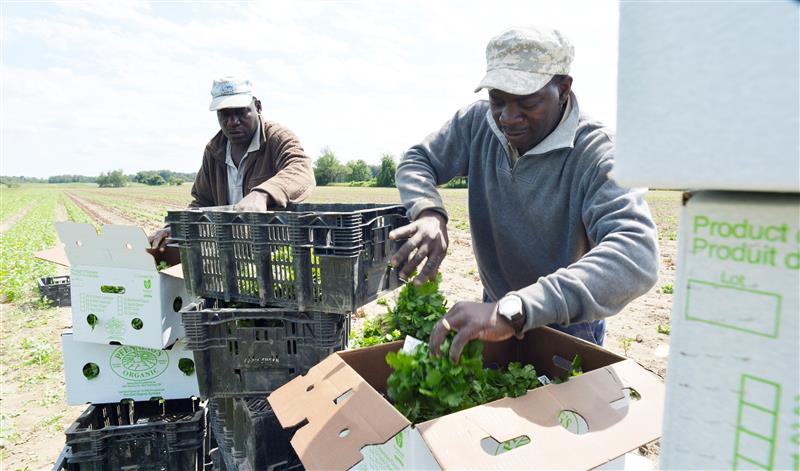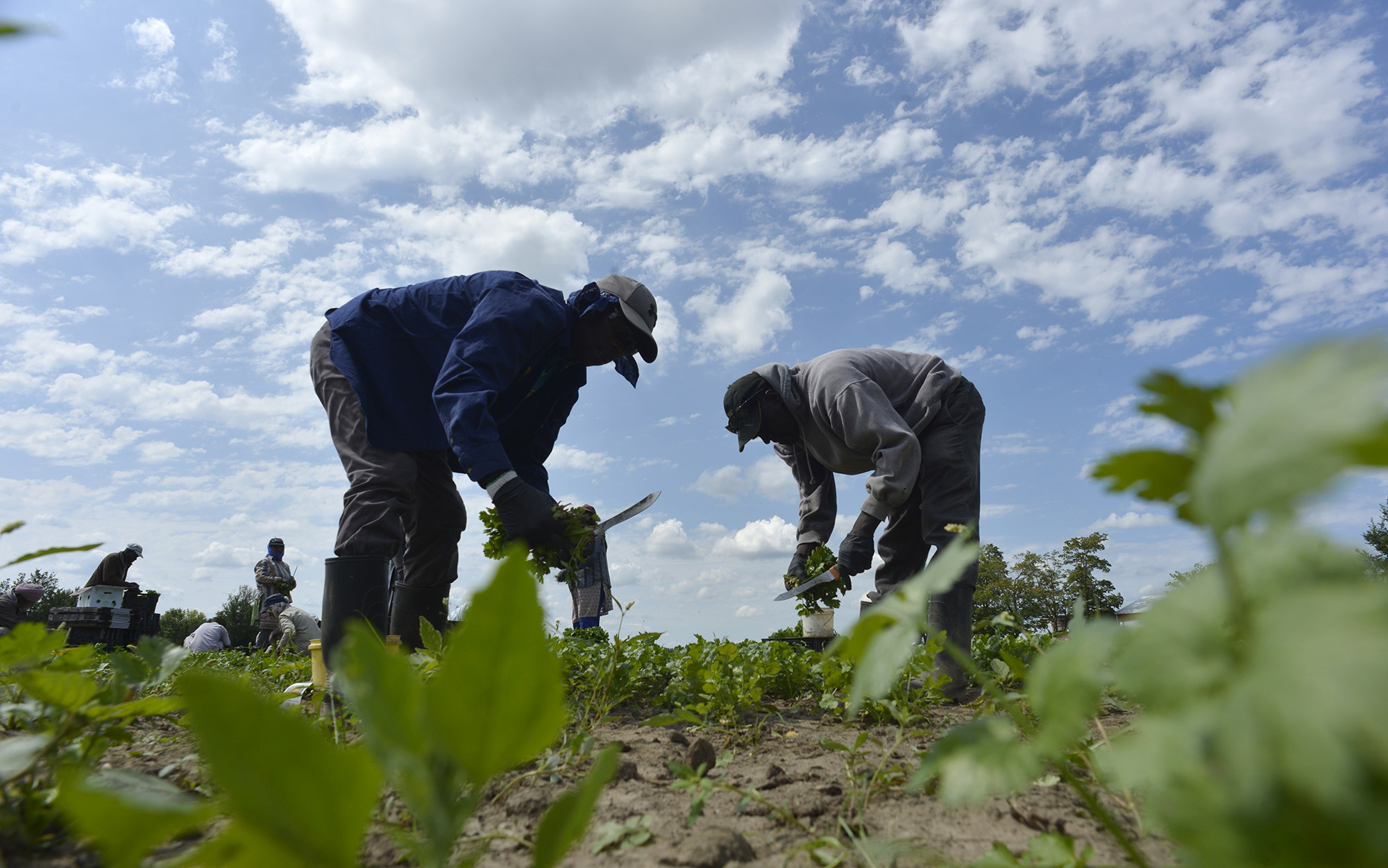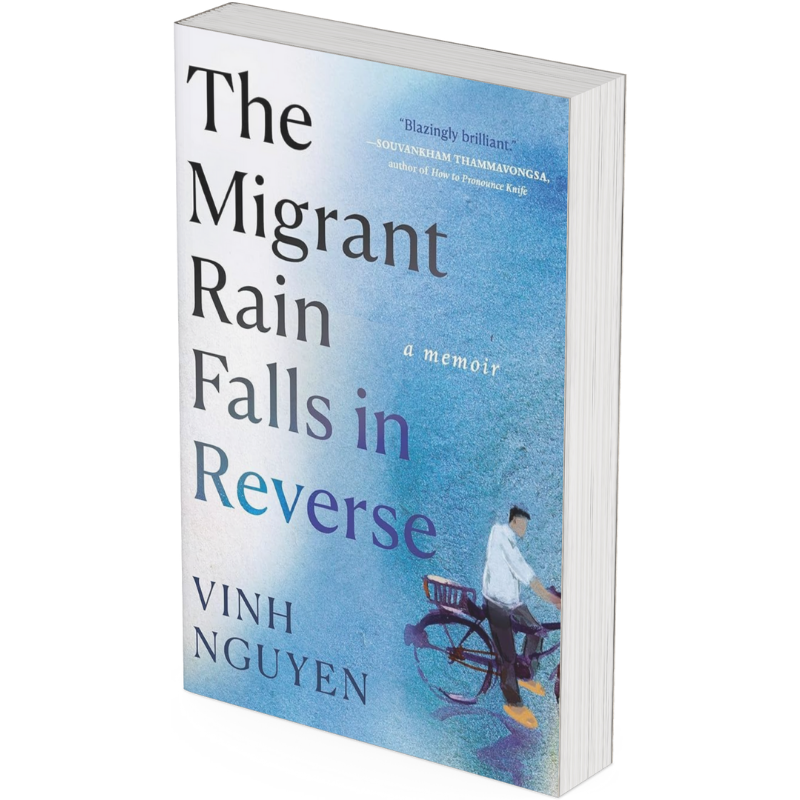Book of July/Aug 2024
The Story of Us
Discussion Guide
Host: Ketty Nivyabandi
Topics covered:

About the book
The Story of Us by Catherine Hernandez is a compelling novel that delves into the life of Mary Grace “MG” Concepcion, a young wife and migrant worker from the Philippines who travels firstly to Hong Kong and then to Canada for better opportunities. MG endures challenging and often exploitative work environments, reflecting the real-life struggles many temporary foreign workers face in Canada. MG’s story is told by her unborn child, adding a uniquely profound and intimate layer to the novel as it explores themes of sacrifice, resilience, and the quest for belonging.
MG’s journey reveals the systemic issues identified by migrant-led organizations, Canadian civil society, unions, academics, and the UN Special Rapporteur on contemporary forms of slavery. Canada’s Temporary Foreign Worker Program exacerbates the power imbalance between workers and employers by tying workers to a specific employer through closed work permits.
As we see in the narrative describing MG’s precarious situation, the Temporary Foreign Worker Program leaves workers vulnerable to abuse and exploitation. Like many real-life migrant workers, MG faces a reality where her rights are abused, her ability to seek justice is constrained, and her livelihood is tied to the whims of her employers.
As MG transitions to a new role as a Personal Support Worker for Liz, an elderly transgender woman living with Alzheimer’s disease, the novel shifts its focus to themes of chosen family and the power of human connection. MG forms a deep and transformative friendship with Liz, which challenges her perceptions and helps her grow as an individual. This relationship, set against the backdrop of a flawed and often harsh system, underscores the resilience of the human spirit and the importance of compassion and solidarity in the face of systemic injustice.


A bit of history
Temporary Foreign Workers
‘A breeding ground for contemporary forms of slavery’
People who come to Canada under the Temporary Foreign Workers Program carry out crucial work—they help to keep Canada’s food, care, construction and hospitality sectors (to name a few) functioning.
However, the program is criticized by many, including migrant worker groups, civil society, unions, academics, and the United Nations Special Rapporteur on contemporary forms of slavery.
Employers were cleared to hire 239,646 temporary foreign workers in 2023, double the number 5 years ago.
The program’s structure, which ties workers to specific employers through closed work permits, creates an environment ripe for exploitation. Workers are often placed in vulnerable positions where they are afraid to report abuses due to the risk of deportation or job loss. This system institutionalizes power imbalances, making it difficult for workers to exercise their rights or seek justice.
Catherine Hernandez
Author & Screenwriter


Canada’s Temporary Foreign Workers Program
Temporary foreign workers in Canada frequently encounter issues such as wage theft, substandard living conditions, and limited access to healthcare. The UN Special Rapporteur also received reports of physical, emotional and verbal abuse, excessive work hours, limited breaks, and sexual harassment, exploitation and abuse.
The program’s design fails to provide adequate protection and leaves workers without access to justice when their rights are violated. The lack of a clear pathway to permanent residency increases these vulnerabilities, trapping workers in cycles of dependency and exploitation.
Tomoya Obokat
UN Special Rapporteur
To address these issues, Canada must abolish the closed work permit in all labour migration programs and grant open work permits to Temporary Foreign Workers Program participants and other migrant workers.
Upholding fairness and human dignity for all workers, regardless of their migration status, means they should have access to comprehensive protections and benefits.
Catherine Hernandez
Author & Screenwriter
Discussion Questions
- The idea of the journey in fiction creates a framework for characters and readers to travel from innocence to experience, ignorance to enlightenment, or bondage to freedom. What sort of journeys are made in this book?
- How does the narrative perspective of MG’s unborn child influence the reader’s understanding of her experiences as an overseas Filipina worker?
- In what ways does MG’s relationship with Liz challenge her understanding of gender identity?
- How does their relationship evolve throughout the novel, and what does it reveal about the power of chosen families?
- How does Catherine Hernandez portray the vulnerabilities and challenges temporary foreign workers face?
- This book deals with themes of identity, acceptance, and belonging. How do these themes manifest in the lives of MG, Liz, and the other characters?
- What are the implications of the power imbalance created by employer-specific work permits in Canada’s Temporary Foreign Worker Program? How do these power imbalances play out as MG works for each employer?
- The author approached the book with the following questions in mind: “How do we care for vulnerable populations? Who is caring for the caregivers? And how do we respect them?” How would you answer these questions?
- What identities are explored in this text? (i.e. race and Indigeneity, sexual orientation, gender identity, religion, immigration status, etc.)?
- How fair and fully dimensional did you find the representation of the main characters?
- What identity and social factors (gender, culture and background) or experiences in your life have affected your understanding of and reaction to this book?

The Story of Us
By Catherine Hernandez
HarperCollins Canada, 2023

Catherine Hernandez
Author & Screenwriter
Discussion Guide
Download the Amnesty Book Club Discussion Guide for The Story of Us in a low-resolution sharable PDF file.
Learn More
Listen to Catherine Hernandez on CBC Radio’s The Next Chapter
Report of the Special Rapporteur on contemporary forms of slavery, including its causes and consequences, Tomoya Obokat
Read Amnesty’s statement on Canada’s Temporary Foreign Worker’s Program:
Take Action
Sign our petition calling on Canada to stop the abuses of migrant workers
Sources
HarperCollins Canada, catherinehernandezcreates.com, Employment and Social Development Canada (ESDC), United Nations, CBC’s Q with Tom Power, 2023, The Ampersand Review, 2023
What we’re reading now

One Day, Everyone Will Have Always Been Against This
Omar El Akkad
Author Omar El Akkad joined the Amnesty Book Club on May 4, 2025. Please join the Amnesty Book Club to watch the recording.

The Migrant Rain Falls in Reverse
Vinh Nguyen
Author Vinh Nguyen joined the Amnesty Book Club on June 20, 2025. Please join the Amnesty Book Club to watch the recording.

Who We Are
The Honourable Murray Sinclair
Senator Murray Sinclair’s son, Niigaan Sinclair joined the Amnesty Book Club on October 5, 2025. Please join the Amnesty Book Club to watch the recording.

The Immortal King Rao
Vauhini Vara
Discussion Guide coming soon.

Real Ones
Katherena Vermette
Discussion Guide coming soon.

The Message
Ta-Nehisi Coates
Discussion Guide coming soon.
What members are saying
It’s wonderful that the Book Club provides an opportunity to participate in events that allow us to see inside the mind of the author and learn a little about them as well.
COLLEEN MORRISON
Amnesty International Book Club Member
Thank you, Amnesty, for continuing to be the voice for those without a voice, for educating those unaware, and for giving hope through actions.
LESLIE BULLARD
Amnesty International Book Club Member
I have donated to Amnesty for many years. Finding out that Amnesty also runs a book club just increased my admiration for the organization.
JEAN HILLABOLD
Amnesty International Book Club Member
